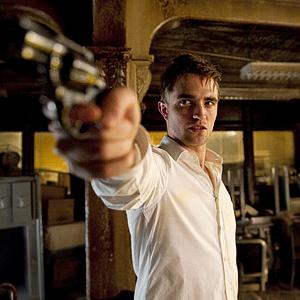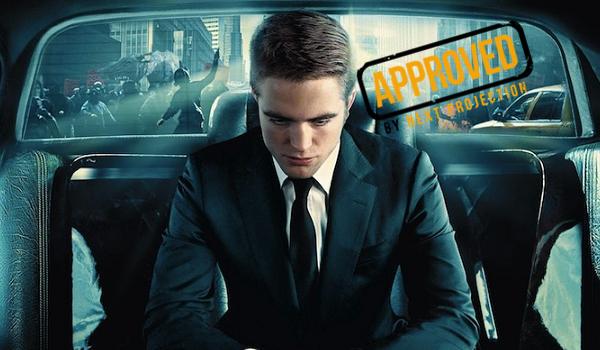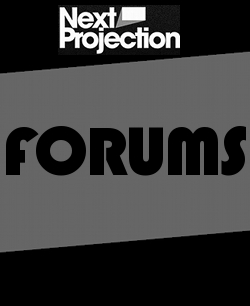Review: Cosmopolis (2012)
Cast: Robert Pattinson, Juliette Binoche, Sarah Gadon
Director: David Cronenberg
Country: France | Canada | Portugal | Italy
Genre: Drama
Official Trailer: Here
Editor’s Note: Cosmopolis is now showing in Canada and opens in US theatres on August 17th
While his last decade has been spent producing works most directors would be proud to count among their canon, David Cronenberg has in a sense diversified from what many consider to be Cronenbergian, moving away from the wince-inducing viscera of The Brood, Videodrome, Crash, and eXistenZ to more typical crime dramas in the form of A History of Violence and Eastern Promises. What many saw as a misstep in 2011’s talky psychological drama A Dangerous Method perhaps best highlights the distinguishing factor of the director’s work since the turn of the millennium: his films have been penned by others.
Packer’s singular objective to have his hair cut in his lifelong barbers as the world begins to crumble—socially, financially, even physically—around him would be easy to interpret as an indictment of the 1%’s casual disregard for the suffering of the masses, yet to read the film as this and this alone is to dismiss so much of Cronenberg’s insight into modern life.
 Adapted from Don DeLillo’s novel, Cosmopolis marks Cronenberg’s first screenplay in thirteen years, and an immediate return to the kind of abundant eeriness not seen in his work since the ‘90s. He imbues the story of young billionaire Eric Packer with that same sense of ethereal oddity that surrounds his strongest protagonists, transforming a languorous limousine journey across New York to get a haircut into a surrealistic odyssey connected only in theory to the real world.
Adapted from Don DeLillo’s novel, Cosmopolis marks Cronenberg’s first screenplay in thirteen years, and an immediate return to the kind of abundant eeriness not seen in his work since the ‘90s. He imbues the story of young billionaire Eric Packer with that same sense of ethereal oddity that surrounds his strongest protagonists, transforming a languorous limousine journey across New York to get a haircut into a surrealistic odyssey connected only in theory to the real world.
Packer’s singular objective to have his hair cut in his lifelong barbers as the world begins to crumble—socially, financially, even physically—around him would be easy to interpret as an indictment of the 1%’s casual disregard for the suffering of the masses, yet to read the film as this and this alone is to dismiss so much of Cronenberg’s insight into modern life. Packer may be the embodiment of capitalistic philosophy, his ludicrous wealth and only passing appreciation of human social structure painting him as an austere personification of big business, but for all his inhumanity there is a running current of life beneath. Cronenberg has always managed to elicit the best from great actors, Jeremy Irons, James Woods, and James Spader each showcasing arguably their best work under his direction. Where Pattinson may seem an unlikely addition to this elite club, he could scarcely be more suited to the role of Packer. Like Packer, Pattinson is more a name than a recognisable personality, a figure all know but few truly understand. In Pattinson’s every glance, every movement, every smile, there is the sense of a man coming to terms with whom and what he is. Packer’s shifting perspective on himself is far more understated than that of the world’s, and in this the true brilliance of both Pattinson and the film itself come to be revealed.
There’s a very deliberate alienating effect to the speech of the characters, particularly that of Packer. His is a distinctly literary patois as dissociated from typical human speech as he is from every other social custom. The arrhythmic flow of the dialogue is jarring, yes, but in such a way as to make every word rich with double-entendre, every vocal intonation steeped in semiotic significance.
 Employing for the most part DeLillo’s dialogue verbatim, Cosmopolis nonetheless carries the distinct quasi-horror air of intensity its director is best known for. There’s a very deliberate alienating effect to the speech of the characters, particularly that of Packer. His is a distinctly literary patois as dissociated from typical human speech as he is from every other social custom. The arrhythmic flow of the dialogue is jarring, yes, but in such a way as to make every word rich with double-entendre, every vocal intonation steeped in semiotic significance. Sound is paramount to the film’s effect, the near silence of the limo as it crawls through the frantic streets making all the more pronounced the subtle tones of Howard Shore’s score once eventually they arrive. Instrumental to the many crescendo scenes scattered throughout the film which gradually move from austere removal to involved intrigue, Shore’s work here is the pinnacle of his now three decade-long collaboration with Cronenberg. Equally effective is the work of Ronald Sanders, Cronenberg’s similarly long-term editor, whose transitions regularly follow the posing of a question, the cuts standing in for the answers. To label the film as a dialogue-laden drama is to misrepresent the astounding technical achievements of its team, expertly building apprehension with minimalistic mastery. Its concluding scene is one of the most impeccably mounted of Cronenberg’s oeuvre, an alarmingly uncomfortable cocktail of apical tension, arresting performances, and exploding aggression from all fronts, the music now disregarding all restraint as the cup of animosity at last runneth over.
Employing for the most part DeLillo’s dialogue verbatim, Cosmopolis nonetheless carries the distinct quasi-horror air of intensity its director is best known for. There’s a very deliberate alienating effect to the speech of the characters, particularly that of Packer. His is a distinctly literary patois as dissociated from typical human speech as he is from every other social custom. The arrhythmic flow of the dialogue is jarring, yes, but in such a way as to make every word rich with double-entendre, every vocal intonation steeped in semiotic significance. Sound is paramount to the film’s effect, the near silence of the limo as it crawls through the frantic streets making all the more pronounced the subtle tones of Howard Shore’s score once eventually they arrive. Instrumental to the many crescendo scenes scattered throughout the film which gradually move from austere removal to involved intrigue, Shore’s work here is the pinnacle of his now three decade-long collaboration with Cronenberg. Equally effective is the work of Ronald Sanders, Cronenberg’s similarly long-term editor, whose transitions regularly follow the posing of a question, the cuts standing in for the answers. To label the film as a dialogue-laden drama is to misrepresent the astounding technical achievements of its team, expertly building apprehension with minimalistic mastery. Its concluding scene is one of the most impeccably mounted of Cronenberg’s oeuvre, an alarmingly uncomfortable cocktail of apical tension, arresting performances, and exploding aggression from all fronts, the music now disregarding all restraint as the cup of animosity at last runneth over.
The defining distinction between Cosmopolis and the rest of Cronenberg’s post-2000 work is this: while any director would be proud to call these films their own, only Cronenberg could have made this movie. Only Cronenberg could have drawn out in so revelatory a way the greatness waiting within Pattinson, only Cronenberg could have dressed up so morally complex and philosophically rich a story in so evident an allegory, only Cronenberg could have distorted the recognisable world in such a way as to make it more real. This is Cronenberg returned to what he does best, delivering a film that stands both as a highlight of this year, and of its director’s work to date. Cosmopolis is not just a reflection of our times, it is a reflection of our lives, a reflection of ourselves and the dark, angry asymmetry of our existence.
Related Posts
-
Lynne
-
abbeysbooks
-
http://www.facebook.com/baronronan Baron Ronan Doyle
-
abbeysbooks
-
abbeysbooks
-
http://www.facebook.com/baronronan Baron Ronan Doyle
-
abbeysbooks
-
http://twitter.com/frank_mcdevitt Frank McDevitt
-
abbeysbooks
-
abbeysbooks
-
http://twitter.com/frank_mcdevitt Frank McDevitt
-
abbeysbooks
-
http://twitter.com/frank_mcdevitt Frank McDevitt
-
http://twitter.com/adam_the_k Adam K
-
abbeysbooks
-
abbeysbooks
-
curioushairedgal
-
http://twitter.com/frank_mcdevitt Frank McDevitt
-
curioushairedgal
-
abbeysbooks
-
xulux
-
abbeysbooks
-
curioushairedgal
-
abbeysbooks
-
http://www.facebook.com/baronronan Baron Ronan Doyle
-
http://twitter.com/adam_the_k Adam K
-
abbeysbooks














 Cannes Review: Blue Is the Warmest Colour (2013)
Cannes Review: Blue Is the Warmest Colour (2013) Review: The Hangover Part 3 (2013)
Review: The Hangover Part 3 (2013) Review: The Hangover 3 (2013)
Review: The Hangover 3 (2013) Review: Frances Ha (2012)
Review: Frances Ha (2012) Cannes Review: Wakolda (2013)
Cannes Review: Wakolda (2013)




